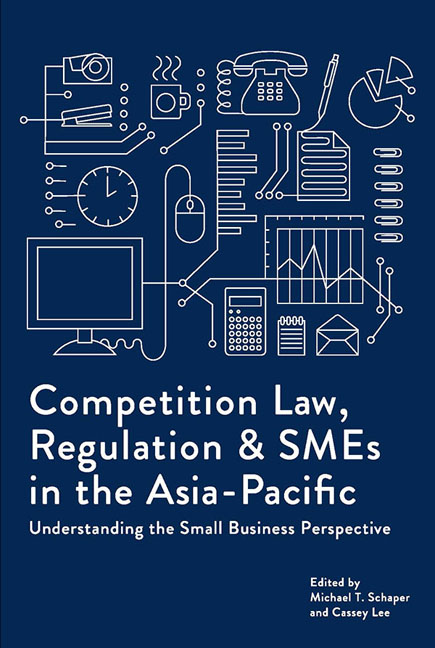 Competition Law, Regulation and SMEs in the Asia-Pacific
Competition Law, Regulation and SMEs in the Asia-Pacific from Section 1 - Theories And Basic Concepts
Published online by Cambridge University Press: 05 August 2017
This chapter discusses some of the ways in which online information and education programmes can be developed to help small and medium-sized enterprises (SMEs) better understand their rights and obligations under competition law. It begins by briefly examining the rationale for doing so; outlines some of the characteristics of SME information-seeking behaviour; discusses some elements needed for a successful online education strategy; and then reviews different approaches today in a selection of countries. Most regulatory agencies provide only a very limited amount of SMEspecific material online, largely based on print publications, although some more interactive tools are being developed. A detailed example is provided of the online education programmes developed by the Australian Competition and Consumer Commission. Some common themes in successful education campaigns include providing formal certification; using simple, direct, and relevant material; obtaining third party endorsement from industry associations; using effective evaluation tools; and developing a network of educational users.
Introduction
Is it possible to build a culture of a well-informed and well-educated SME (small and medium-sized enterprise) community that understands the major elements of a national competition law regime, the logic behind its creation, how individual firms should comply with the law, and how they are able to actively also exercise their rights within the law?
For many regulators, policymakers, and enforcement bodies, knowledge of competition law is a given. It is, after all, the key subject that they deal with on a day-to-day basis. However, for the owners, managers and staff of most SMEs, it is only one of many pieces of disparate information that they must understand, process, and comply with.
Competition law is also complex. It can contain many different precepts, involve a sophisticated understanding of both economics and law, and in many jurisdictions, may also contain numerous per se provisions and exemptions. It is not necessarily the easiest body of regulations for a layperson to absorb, understand, and apply in practice.
There is often substantial information asymmetry and many wrongful assumptions. Regulators who know the chapter and verse of their laws and regulations expect small businesses to be equally fluent in these requirements. Large firms, who have considerable internal resources and access to specialist advisers and trainers, know much more than their smaller counterparts, thus accentuating the disparities in their relative strengths.
To save this book to your Kindle, first ensure [email protected] is added to your Approved Personal Document E-mail List under your Personal Document Settings on the Manage Your Content and Devices page of your Amazon account. Then enter the ‘name’ part of your Kindle email address below. Find out more about saving to your Kindle.
Note you can select to save to either the @free.kindle.com or @kindle.com variations. ‘@free.kindle.com’ emails are free but can only be saved to your device when it is connected to wi-fi. ‘@kindle.com’ emails can be delivered even when you are not connected to wi-fi, but note that service fees apply.
Find out more about the Kindle Personal Document Service.
To save content items to your account, please confirm that you agree to abide by our usage policies. If this is the first time you use this feature, you will be asked to authorise Cambridge Core to connect with your account. Find out more about saving content to Dropbox.
To save content items to your account, please confirm that you agree to abide by our usage policies. If this is the first time you use this feature, you will be asked to authorise Cambridge Core to connect with your account. Find out more about saving content to Google Drive.